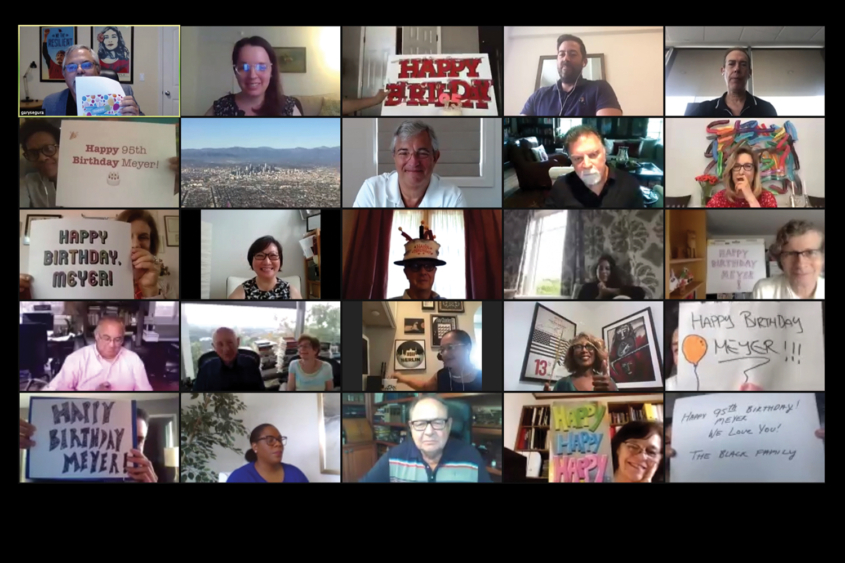
Advisory Boards Provide Inspiration, Perspective
By Les Dunseith
At a university, the roles are generally understood. Faculty educate and engage in research. Students learn from and assist faculty. Staff take care of administrative details. Donors, many of them alumni, provide supplemental funds and act as mentors. The dean sets priorities and fosters a vision.
Less understood, however, are the volunteer leaders from business, government and the nonprofit sectors who provide guidance to deans and academic directors — the boards of advisors.
Several such boards exist at the School, either working directly with Dean Gary Segura and his staff or offering advice to individual research centers. As interested observers, they are less likely to get mired in day-to-day minutia and instead think about the big picture, dreaming of how things could be better at the School, within academia or in society as a whole.
“Our commitment to the School is, obviously, to be ambassadors but also to be active participants,” said Jeffrey Seymour, a longtime member of the UCLA Luskin Board of Advisors who is currently serving as chair. That participation means attending meetings and serving on subcommittees that deal with aspects such as event planning, philanthropy or mentorship. It also involves building bridges.
“We’ve been aggressive this year with efforts to reach out to local government, bringing elected and appointed decisionmakers to Luskin with the goal of creating partnerships between us,” explained Seymour, noting recent engagements with the city and county of Los Angeles, Beverly Hills, West Hollywood and others.
“This provides opportunities both for Luskin and for the public sector to access the scholarly resources coming from Luskin and UCLA,” he said. Seymour is well-versed in such academic-government partnerships thanks to a 40-year career in government relations and his tenures with the University of California Regents, UC Alumni Associations and UCLA Alumni Association. He is a former president of both alumni groups.
Connecting scholars to government and community leaders is at the heart of the Luskin Summit, which focuses on timely policy issues during discussions led by faculty experts. The idea originated with the Board of Advisors and a subcommittee helps set the agenda.
The first Luskin Summit in 2019 exceeded expectations, drawing about 300 people to the UCLA campus. Then came the coronavirus pandemic, and the second Summit had to suddenly change to a virtual series of discussions. The impact? More than 10,000 participants.
Future summits are likely to continue having a virtual element.
“No matter what happens after COVID, we obviously have great resources here on campus, and we’ve proven that we can virtually expand the audience for this kind of program,” Seymour said.
Other advisory boards at UCLA Luskin also have successfully helped faculty and staff evolve programming to meeting changing needs. For example, JR DeShazo, director of the UCLA Luskin Center for Innovation (LCI), was moved to act after witnessing how wildfires, heat waves and storms disproportionately impact marginalized communities. He envisioned a gathering of top climate researchers to forge a path forward.
So he sought out assistance from LCI Advisory Board members such as Cynthia Hirschhorn, founder of the Women’s Civic Action Network, or Civicas; Jonathan Parfrey, executive director of the nonprofit Climate Resolve; and Alfredo Gonzales, Southern California director of the Resources Legacy Fund.
These leaders and their organizations helped LCI plan and execute the first-of-its-kind Climate Adaptation Research Symposium in September. Also pivoting from an in-person gathering because of the pandemic, the symposium ultimately drew 2,000 people from 47 U.S. states and 58 countries to hear 70 of the nation’s climate adaptation leaders present 17 virtual sessions in a single day.
At the Institute of Transportation Studies (ITS), guidance from both the Advisory Board and a Steering Committee that draws from transit agencies, environmental groups, urban planners and other stakeholders helped event organizers recast a signature symposium not only as a virtual experience but also one with an enhanced focus on racial equity.
For nearly three decades, the annual UCLA Lake Arrowhead Symposium has brought researchers together with practitioners, elected officials and private sector stakeholders to zero in on issues related to transportation, land use and the environment. Under the theme “Not ‘Back to Normal’ – Mapping a Just Transportation Recovery from COVID-19,” this year’s online series made strategic equity a priority, an approach that is being adopted throughout the ITS operation.
The capacity to support the Luskin School and its research centers is a central tenet for people like Seymour, who has overseen a recent evolution of the Board of Advisors itself.
“We have implemented a board rotation, allowing us the opportunity to enlist new talent onto the board,” Seymour said.
The changes were implemented at the board’s October meeting, held virtually.
“We said thanks to some of our very longstanding board members who had provided much guidance and leadership,” said Nicole Payton, executive director of external relations at UCLA Luskin, “and they’ll be members of our board emeritus.”
New members “are very engaged in the community and provide broader representation and diversity. It was one of our key areas that we wanted to grow,” Payton said.
“We’ve been very lucky through the years to have really good people interested in being involved with Luskin,” Seymour said. “And one of the reasons why we implemented the rotation is that there are so many other people who want to get involved.”
The four new board members:
- Attorney Kafi Blumenfield Law ’97 is an expert on philanthropy and social justice who helped found Discovery Cube LA and has been president and CEO of Liberty Hill Foundation.
- Attorney Tom McLain specializes in international business transactions with an emphasis on intellectual property licensing related to the entertainment industry.
- Cynthia McClain Hill, also an attorney, earned her UCLA degree in political science in 1978 and her juris doctorate in ’81. McClain Hill founded her own law practice in the mid-1990s and has served on the Los Angeles Police Commission since 2016.
- Jacqueline Waggoner holds a UCLA degree in sociology and earned her master’s in urban planning at UCLA Luskin in 1996. She is the president of the Solutions division at Enterprise Community Partners, which operates 11 market offices across the country and delivers program, policy, advisory and capacity-building support at the national, state and local levels. Waggoner was also a member of the Committee for Greater LA, whose report reimagining Los Angeles from a racial equity perspective is highlighted elsewhere in this issue.
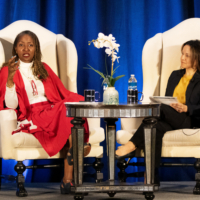
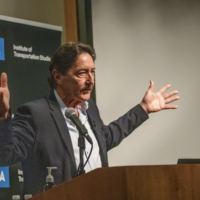
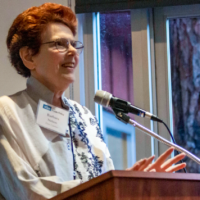
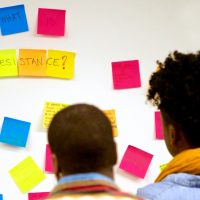



Leave a Reply
Want to join the discussion?Feel free to contribute!